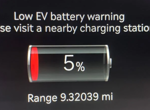Its report says: “GAP is usually sold face to face, and we know that such sales can be particularly persuasive. In addition, the price of GAP may seem small against a high reference price – that of the car.
“The consumer is also likely to be more sensitive to risk and receptive to a sale at the point of making what is, for many people, one of the most expensive purchases they will make, and which they will want to protect.
“Consumers may also be unclear about the actual cost of GAP versus that of the car or the car finance, as GAP may be presented as part of a deal or a way of securing a discount on the primary product.”
'This is not the end of the line for GAP'
Sue Robinson, NFDA director, said: “The NFDA is concerned that the changes to GAP insurance could affect dealerships and cause significant problems overall for the industry. We will be reviewing and responding to the outlined proposals.”
Fernando Gomez, managing director of Mapfre Abraxas, which provides dealers with GAP, told AM: “It’s certainly not the end of the line for GAP sold through the automotive industry.
“The FCA have not raised any issues with the product itself. Of course, dealers are going to need to adapt their distribution models for GAP insurance in light of the FCA findings and we will assist them in doing so. However, we believe there is definitely still a strong market and a genuine customer need.
“The automotive industry always faces challenges and it always responds – this is another one of those situations and we’re confident we will all adapt for the future.”
The potential changes to the sale of general insurance add-ons have been called “surprisingly generic” by the Association of British Insurers.
















Login to comment
Comments
No comments have been made yet.